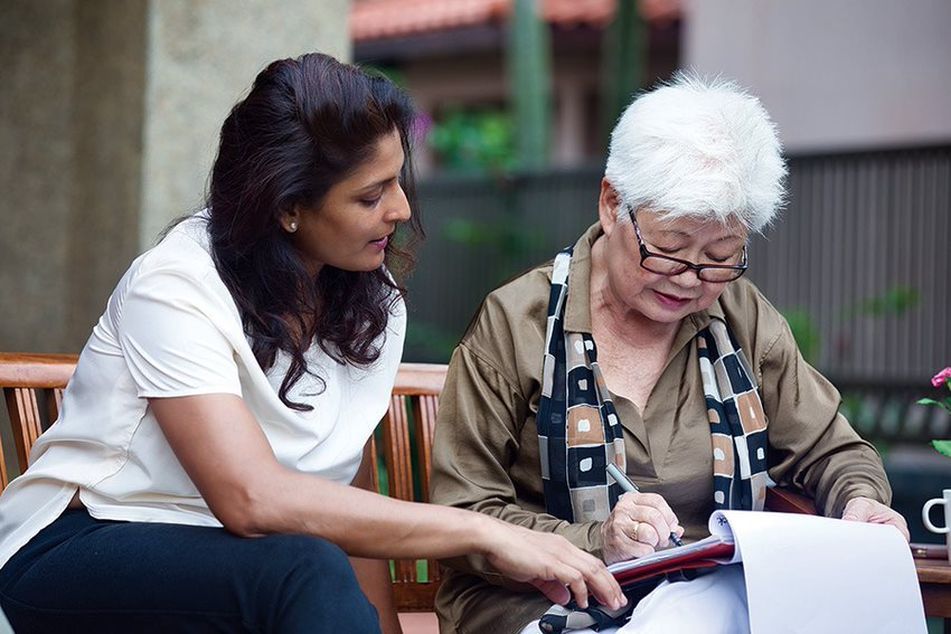Helping clients apply for survivor benefits

If a surviving spouse is collecting their own Social Security retirement or disability benefit when their spouse dies, or is not yet collecting Social Security, they will have to apply for survivor benefits.
One of a financial advisor’s most difficult and important roles is helping a client through the challenges of losing a spouse. In addition to the grief of dealing with the death of a loved one, there are the seemingly endless tasks involved in applying for survivor benefits and transferring assets to the surviving spouse.
Tom Baird, an advisor with Veritas Wealth Management in Houston, reached out to me when one of his clients suddenly lost his husband.
“Will you educate me on the process of dealing with Social Security after a death?” Baird wrote to me in an email. “Does the funeral home notify Social Security of a death and the survivor must wait for Social Security to contact the estate, or should the survivor contact Social Security to start the process?
“My client is feeling a little lost in the process and is concerned that the checks will stop,” he said.
The surviving spouse or another family member should contact the Social Security Administration as soon as possible. In most cases, the funeral home will report the person’s death, and the family should give the funeral home the deceased person’s Social Security number if they want them to make the report.
You can’t report a death or apply for survivors benefits online. Instead, call SSA’s national toll-free number (800-772-1213) from 8 a.m. to 7 p.m. local time, Monday through Friday. Or you can find the phone number for your local office by going to the agency’s Social Security Office Locator at https://secure.ssa.gov/ICON/main.jsp and using your zip code.
ELIGIBILITY FOR BENEFITS
In Baird’s client’s case, the deceased spouse was collecting Social Security benefits. The surviving spouse, age 68, was not. He had planned to wait until 70 to file for his own retirement benefits. “Is my client eligible for survivor benefits?” Baird asked.
“Yes, your client is entitled to his own Social Security retirement benefit and a Social Security survivor benefit, but not at the same time,” I replied. “Because the surviving spouse had not yet claimed Social Security, he may have the option of claiming one type of benefit first and switching to the larger benefit later.”
A retirement benefit continues to grow by 8% per year for every year one postpones claiming beyond full retirement age up to age 70. A survivor benefit does not. A survivor benefit is worth 100% of what the late spouse was collecting at time of death or was entitled to collect if they died before claiming Social Security — assuming the surviving spouse is at least full retirement age at the time. Survivor benefits are available as early as age 60, but benefits would be permanently reduced.
“If the survivor benefit is smaller than his own retirement benefit, your client could collect the survivor benefit now and switch to his own maximum retirement benefit at 70 if that would be larger,” I advised. “But if the survivor benefit were the larger of the two amounts, he should apply for survivor benefits immediately and forego his own smaller retirement benefit.”
Baird’s client and spouse were same-sex partners. Ever since the Supreme Court issued a decision in Obergefell v. Hodges in 2015, same-sex couples have had a constitutional right to marry in all states and are able to benefit from Social Security programs such as spousal and survivor benefits just as any other married couple.
APPLYING FOR BENEFITS
If a surviving spouse is getting benefits on a spouse’s earnings record when that spouse dies, they generally do not need to apply for survivor benefits. SSA will automatically change any monthly benefits they receive to the larger survivor benefits after receiving a report of the death.
But if a surviving spouse is collecting their own Social Security retirement or disability benefit when their spouse dies, or as in Baird’s client’s case, not yet collecting Social Security, they will have to apply for survivor benefits. Social Security will check to see whether you can get a higher benefit as a widow or widower.
Now, back to Baird’s client’s concern that the Social Security checks will stop upon the reported death of the recipient. Yes, they would.
If the deceased was receiving Social Security benefits, you must return the benefit received for the month of death and any later months. For example, if the person died in July, you must return the benefits paid in August. For funds received by direct deposit, contact the bank and request that any funds received for the month of death or later be returned to Social Security. Benefits received by check must be returned to SSA as soon as possible. Do not cash any checks received for the month in which the person dies or later.
A one-time lump-sum death payment of $255 can be paid to the surviving spouse if they were living with the deceased.
(Questions about new Social Security rules? Find the answers in Mary Beth Franklin’s 2023 ebook at MaximizingSocialSecurityBenefits.com.)
Schwab making big-league moves as it integrates TD
Learn more about reprints and licensing for this article.








